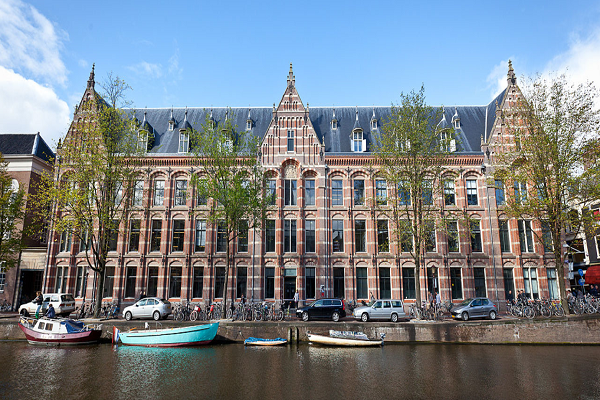University of Amsterdam: UvA connects with NGO’s to train data-experts
Over the next 10 years, 3.5 million data experts will be needed worldwide to tackle social issues in low- and middle-income countries, according to a report by one of the ‘data for good’ global think tanks data.org. Through the Analytics for a Better World (ABW) Academy, UvA is helping NGOs use data science to contribute to solving a range of development problems, from disaster response to fighting child malnutrition.
A total of 43 fellows from organizations such as Red Cross, World Food Programme, AMREF Health Africa, United Nations Environment Programme, Max Foundation, USAID, etc.. (selected from 340 applicants) are joining the online ABW Fellowship Program from around the globe. The first cohort of participants are selected through a thorough review of motivation and impact and is undergoing this fellowship program which is free of cost between July and December 2022.
Make an impact
ABW’s aim is clear: ‘We want to help make an impact on the ground, says Parvathy Krishnan. As CTO of ABW, she is developing the curriculum together with data scientist Claudia Orellana-Rodriguez and other Academy partners of ABW Institute including ORTEC, University of Amsterdam, data.org, CMotions, DHL, Qen Labs, etc. ‘We want to collaborate with motivated individuals that are familiar with the situation around the world and know the local context of problems we address. If we develop tech solutions based on blockchain for a region but there is hardly any internet in that region, for example, the technology will be useless.’
Hands-on
The fellows will bring use cases that will be solved together with ABW team and mentors during the fellowship. Many of the case studies are related to healthcare and food security. The first three weeks are all about the foundations of data science. ‘We offer a low-threshold starter package so that we can get everyone to the same level, after which we offer a specialisation option to participants where we introduce advanced courses and hands-on sessions’, says Krishnan.
Experienced mentor
This specialisation takes place across four tracks: Machine Learning, Business Intelligence, Text Mining and Geospatial Data Analysis. During the 8-week course, the participants will work towards the further development of their own case study; after completing the programme, they will have the tools required to help their own project and subsequently the non-profit they work with in practice. Krishnan: ‘We match everyone with an experienced mentor from the field to make sure that the case study doesn’t grind to a halt when the programme is over.’
Make difference through data
When it comes to the use of data in the non-profit sector, it is useful to look at what the business community is doing. ‘Data analytics has increased the output of companies. We want to achieve the same with NGOs. If we succeed, we will definitely be making a difference in the world’, says Orellana-Rodriguez. ‘NGOs are increasingly approaching problems from a more systematic point of view, in which they visualise the full picture in order to deploy their resources in the right places. A great deal of high quality data is required here, and we are helping them with this.’
Inspire students
For the UvA, the ABW Academy offers an opportunity to be at the cradle of sustainable initiatives and to further develop its own sustainability-related research. Students can collaborate with NGOs through ABW. Krishnan: ‘By means of this programme, we can inspire (future) and current students and researchers to not only use their knowledge for commercial or research purposes, but also to make a difference by creating digital public goods which are scalable and replicable at the same time relevant to local contexts around the globe.’

